“Spotlight” wins Oscar for Best Movie without falling into morbid sensationalism. The film makes us face up to a truth the religious audience does not want to hear.
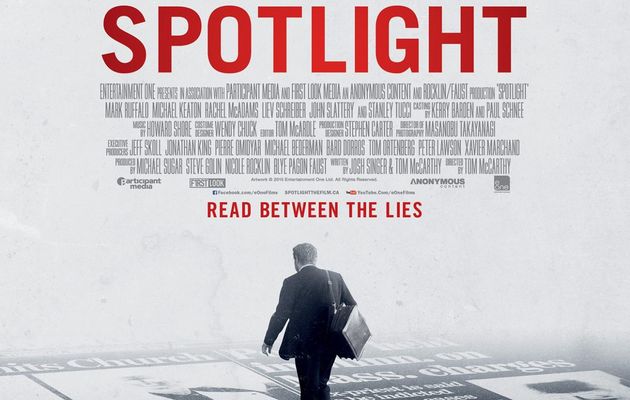 Spotlight, without falling into morbid sensationalism, makes us face up to the truth that the religious public does not want to hear.
Spotlight, without falling into morbid sensationalism, makes us face up to the truth that the religious public does not want to hear.
“If it takes a village to raise a child, it takes a village to abuse one”, says the honourable lawyer played by Stanley Tucci in “Spotlight”. It had been a long time since I had seen a character represent this profession with so much dignity. The same can be said of the journalists who are part of the investigative team of the newspaper that brought the shocking figures of child abuse in the archdiocese of Boston to light – around a thousand children for only 249 priests! –.
However, everything in it is so rigorous and contained, that even the catholic critics have taken their caps off to this film, which is probably the best that the industry has offered us in the last year.
Having already received a whole string of prizes, it is difficult not to talk about this film using superlatives. However, in these mediocre times, productions like this are so unusual that you might be forgiven for thinking that the clock had stopped ticking.
This modest independent film by Tom McCarthy, which he succeeded in bringing to fruition with so much effort – after years of battling against a system that had condemned it to a “black list” for dealing with such a thorny issue–, is of the same calibre as the great classics of 1960s liberalism, such as “All the President’s Men” – the film by Pakula with which everyone is comparing it–.
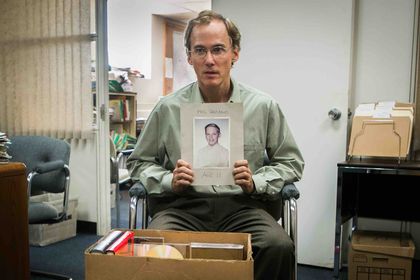 Around a thousand children were abused in the archdiocese of Boston, by 249 priests
Around a thousand children were abused in the archdiocese of Boston, by 249 priests
Curiously, the Jewish journalist who moved from New York and Miami to direct the Boston Globe – masterfully played by Liev Schreiber–, is now the Editor of the newspaper that published the Watergate scandal, inspiring the film starring Robert Redford and Dustin Hoffman in 1976.
Just in case that wasn’t enough, the Assistant Managing Editor, played by the unforgettable Roger Sterling of Mad Men (John Slattery), was also the son of the Editor of the Post when it published the scandal that ended Nixon’s career. As the screenwriter has said, the film also has something of the agonising atmosphere created in “The Verdict” (1982), in which Lumet faces an old and alcoholic Paul Newman with another case of Catholic corruption, this time in a hospital.
The team that won the Pulitzer prize in 2003 guided the actors through a meticulous project. Rachel McAdams spent days studying the real journalist’s manner of speaking by listening to recordings of her voice. Their interest was not in the private life of the characters, but in the investigation itself. The film solidly sets the scene and follows a clean and clear storyline, without getting lost in side stories.
Everything is done with precise camera control, using mainly wide and mid shots, keeping close ups for the dramatic moments at each new discovery, or for the tragic evidence given by the victims. Time is slow, but it increases in intensity without becoming sensationalist, creating a magnetic and impeccable story, which is really brilliant, like little else these days.
INFORMATION OR OPINION?
The cinema is no longer what it used to be, but neither is journalism. When we see this investigative team at the beginning of the millennium, taking notes by hand, checking directories, retrieving old newspaper articles and trying to put some order in all that information by drawing up lists, we realize that we are a long way from that kind of communication.
By reducing press releases to the minimum and trusting that all information can be found online, we have fallen for thinking that not only is knowledge more easily accessible to everyone, but that truth can no longer be manipulated. The results are obvious. Opinion has taken the place of information and the internet is full of comment, pontificating on human and divine matters, as if everyone knew everything.
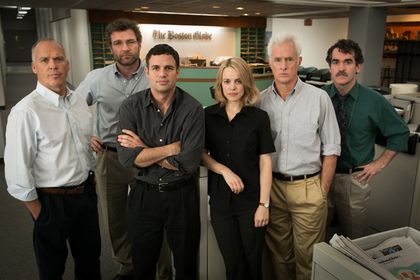 The investigation team won the Pulitzer Price in 2003
The investigation team won the Pulitzer Price in 2003
The issue of religion has, in particular, become a minefield. Regardless of what you say, you are always going to upset someone. As a Protestant writing about this film, I already know that my catholic friends will say: “What does he know?” It is not surprising: when you talk about beliefs and deep convictions, reactions are all the more radical. The only thing that people want to know is whether you are for or against. Everything is opinion and there is no place for nuance.
This is why truth ends up being the last thing that you find in religious information channels. What matters is the issue that you are defending or condemning, and who you are arguing for or against. Everything is partisan.
In religious media, doubts are even cast regarding the news itself: what is the point of talking about this? Whose interests does it serve? There are many taboo subjects. And when a news item is deemed offensive, it can always be cast as sensationalist. This is why I have been surprised at the reaction of many Catholics to this film.
A CATHOLIC PROBLEM?
“Why Catholics should be grateful for ‘Spotlight’ and the media’s exposing abuses within the church” is the provocative title of an article singing the praises of the film, published in the Washington Post by the associate director of Catholic Voices USA, Christopher White. The prestigious catholic critic Steven Greydanus – who writes about “Decent Films” in a popular blog that takes a clearly conservative stance – had already struck the note for public opinion in the National Catholic Register, saying that it would be “easy for Catholics to seize on these and other issues and defensively dismiss the film as a hatchet job”.
This does not seem to be “accurate or helpful”, given that “Spotlight confronts us in a new way with the disastrous consequences of patterns of denial and deception”, when “the Church is called to be the light of the world”, it must not “fear to turn a spotlight on”.
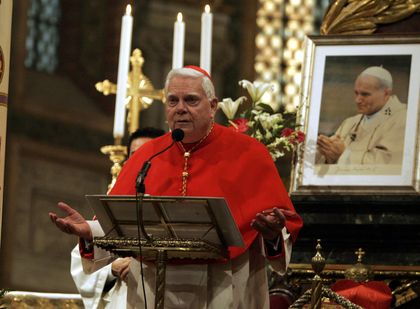 Cardinal Law was transferred to Santa Maria Maggiore, a church dedicated to Mary in Rome by John Paul II
Cardinal Law was transferred to Santa Maria Maggiore, a church dedicated to Mary in Rome by John Paul II
Likewise, Vatican Radio described the film as “honest” and “compelling”, given that according to Luca Pellegrini, it shows the “inexhaustible and uncontainable force of the truth.”, since it does not “give in to personal interpretation or fall[s] into the trap of scandal”. All these Catholic commentators coincide in talking about it as something that happened in the past, regretting that history does not talk about what has happened since, with the current Pope establishing a “zero tolerance” to these abuses.
What is true though is that the man in charge of the archdioceses at the time, Cardinal Law, was transferred to Rome by John Paul II, who put him in charge of one of the four pontifical basilicas, Santa Maria Maggiore, dedicated to Mary.
It is the transfer of these priests that has triggered denunciations in films like that of the Chilean Pablo Larraín, “The Club”, which won the Grand Jury Prize at the Berlin Festival in 2015. On the one hand, this attempt at rehabilitation certainly has something admirable about it, considering that there are churches that treat moral failure as if they were an army dealing a final blow to the injured.
On the other hand, we need to ask ourselves who these injured people are. This is not just a case of physical but also spiritual abuse. The victims have suffered in silence in an institution that has given them life, in the search of eternal salvation. In the words of the people interviewed by the Spotlight team, they felt forced to do these things because “how do you say no to God?”.
AN ABUSIVE CHURCH
It is amazing to see the power that the Church wields in the United States, a country that many identify with Protestantism. However, as Billy Graham’s grandson, Boz Tchidvijian – a law professor that has served as public prosecutor on cases for the protection of minors – argues, this is not just a Catholic problem.
According to the three insurance companies that insure the majority of Protestant churches in the United States, the annual number of complaints for the sexual abuse of minors with any basis, is of 260, while the Catholic church says that it receives only 228. Aside from these statistics, however, there is no justification for the abuse of even one child, all the more so in a church context.
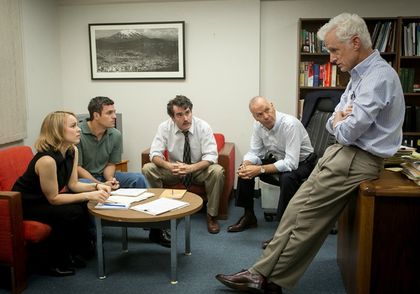 When “the Church is called to be the light of the world”, it must not “fear to turn a spotlight on”
When “the Church is called to be the light of the world”, it must not “fear to turn a spotlight on”
For me, this stands in contrast with the way in which churches show themselves to the world, condemning sexual immorality and claiming that religion is the remedy for all evil. As Tchidvijian says, there is a need for “humility that enables us to be slow in pointing the finger at others, and quick to the difficult and sobering task of self-examination”.
The strength of the argument in “Spotlight” lies in the wise words of the newspaper’s Editor: “We need to focus on the institution, not the individual priests. Practice and policy”. The aim is to “point to the flaws in the system”.
It is not a problem of a few “rotten apples”, as the Church’s defence lawyer says. He then however changes his mind and confirms the details. It is, as the admirable lawyer of Armenian origin observes, a collective effort, which can both educate an abuse a child.
Therein lies the danger of a religious system that instead of revealing evil, hides it. This is what moralism has done in many churches, turning them into centres for hypocrisy that claim the right to judge the world when, in reality, they are part of it.
WHY SEE THIS FILM?
This is a film that I think that we should all see. I don’t tend to say this often. There are few films that I write about that I would consider suitable for everyone. In this case, though, the sobriety and decorum with which this delicate subject is addressed, makes it an easy recommendation to make to any adult.
Those of us who think that the cinema is more than just a means of entertainment, or a means of personal expression, can see in “Spotlight” an instrument of denunciation which rejects the temptation of morbid sensationalism, to make us face up to the truth that the religious audience doesn’t want to hear.
The journalists that investigated this story had a catholic education. He said that he used to like going to church and always thought that he would one day go back. He held onto that idea, later feeling that it had been taken away from him.
That is also feeling of the head of the investigative team, played by Michael Keaton, who was informed of the facts before anyone else and blames himself for not having done more about it.
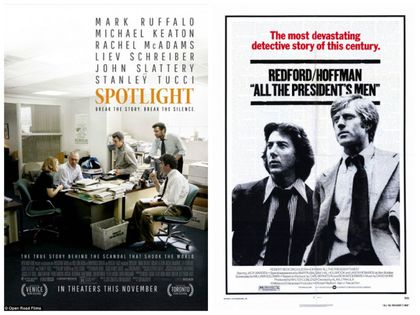 Spotlight should no be envious of
Spotlight should no be envious of
Several of the actors have had a catholic education. John Slattery, known for his role as a 1960s publicists in Mad Men, grew up in Boston’s Irish community. He was an altar boy, just like Michael Keaton. When he was a teenager he had heard stories like these at his catholic school, but he thought that they weren’t serious. He didn’t imagine the scale of the problem, or that it could have been covered up for such a long time.
LIGHT IN THE DARKNESS
Shakespeare said that the evil that men do lives after them. Many of us have suffered due to the evil of others, in the same way as we are responsible for other people’s suffering. Like Shakespeare’s Lady Macbeth, we can continue scrubbing our hands, or licking our wounds, but none of all that can change the past. When we recognize our wrongdoings and confess, it is the present that changes.
When the journalist, played by Keaton, regrets his complicity with the silence surrounding the crime, his boss says to him: “sometimes you’re stumbling around in the dark until someone turns on a light…Then, when the light comes, there is plenty of blame to go around”.
We live in a society in which everyone considers themselves to be a victim of something, or someone. No one wants to face up to their own responsibility. It is always someone else who is to blame for what is happening.
Accordingly, many people will blame God for the wrongdoings of his representatives. Where is the God of justice who allows these things to happen? Together with the character played by Ruffalo, we would like to think that Christianity was different, but we ourselves have stopped putting it into practice.
Rejecting God because of the faults of his servants, is like not eating because something has disagreed with us. No one can accuse God of treating evil lightly. He has judged it with such severity that his own Son paid the price for it. In that we also see his mercy.
The light that exposes the failings of others, also highlights our own failings. “God is light, and in him is no darkness at all.”, says John (1 Jn. 1:5). “If we say we have no sin, we deceive ourselves, and the truth is not in us.” (v. 8). But if we confess our sins, he is faithful and just to forgive us our sins and cleanse us from all unrighteousness (v.9). That is our only hope!

Las opiniones vertidas por nuestros colaboradores se realizan a nivel personal, pudiendo coincidir o no con la postura de la dirección de Protestante Digital.
Si quieres comentar o